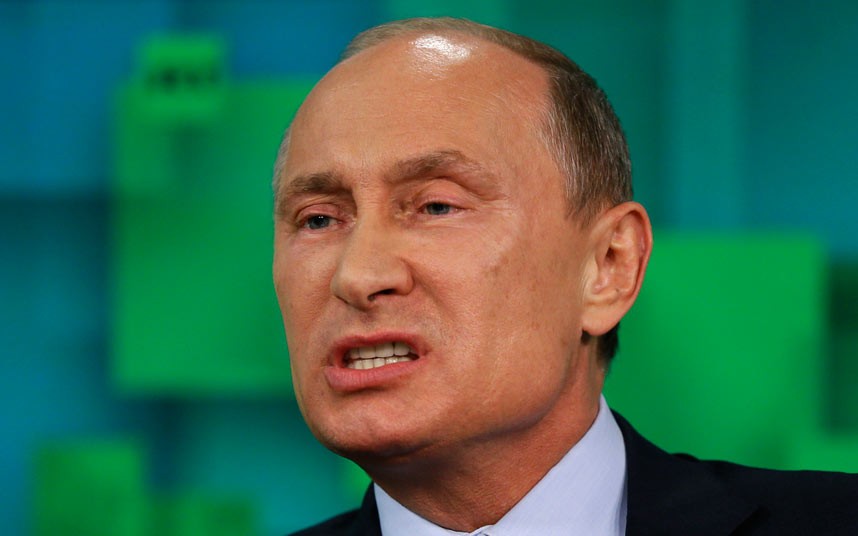 Talks in Geneva on the unrest in eastern Ukraine have concluded with an agreement by the foreign ministers of the European Union, Russia, Ukraine and the U.S. for all sides to “de-escalate tensions and restore security.”
Talks in Geneva on the unrest in eastern Ukraine have concluded with an agreement by the foreign ministers of the European Union, Russia, Ukraine and the U.S. for all sides to “de-escalate tensions and restore security.”
Measured by the hour, the talks were a success: They went on much longer than expected. Measured by results? Not so good. While the EU and the U.S. wait to see if the terms of the agreement are put into effect, the chances of any further sanctions on Russia are slim.
The joint statement says all the right things: “no” to violence, racism and religious intolerance, unofficial armed groups and illegal occupation of public buildings and squares; “yes” to amnesty for protesters who peacefully surrender, monitors from the Organization for Security and Cooperation in Europe, broad national dialogue and constitutional revision.
Fine, but consider the reaction of some of the pro-Russian separatists in Donetsk: They said they’d vacate the buildings they had occupied only after the Ukrainians gathered in Kiev’s Maidan evacuated their camps. Good luck with that. When asked whether Russia had agreed to withdraw its troops massed on Ukraine’s border, U.S. Secretary of State John Kerry bobbed and weaved. And the agreement counts on Russia to control separatists who Russian President Vladimir Putin has insisted are independent operators.
This piece of paper must also be seen in the context of Putin’s words and deeds up until almost the moment it was signed. In a television call-in show this morning, Putin said: “Let me remind you that the Federation Council of Russia gave the president the right to use the armed forces in Ukraine. I very much hope that I will not have to exercise this right.” He also said Russia will demand that Ukraine pay in advance for natural gas — at prices well above those charged to customers in the EU. So much for affirming the “importance of economic and financial stability in Ukraine,” as the agreement puts it.
There’s another problem, and no other way to put it: Putin lies. He lied about the role of Russian troops and infiltrators in Crimea (which he now acknowledges) and he’s lying about their role in eastern Ukraine. Putin’s shamelessness in this regard makes Ronald Reagan’s borrowed Russian injunction of “trust but verify” seem downright quaint.
Putin is likely to betray these latest commitments unless he’s convinced that doing so will have consequences. That’s why stiffer sanctions before today’s negotiations would have helped. Today’s agreement works the other way: by raising false hopes it will encourage Europeans opposed to new sanctions to resist all the harder. It’s exactly what Putin wanted.
President Barack Obama says he doubts Putin’s sincerity, and so he should. By all means, watch and pray for the Geneva accord’s successful implementation. But as you hope for the best, prepare for the worst — and score another round for Vlad the Prevaricator.
. . . . . . . . . . . . . . . .
This article was published at Bloomberg View.